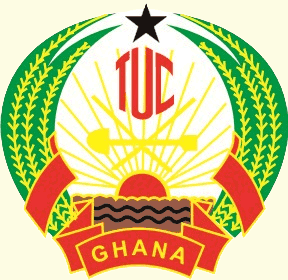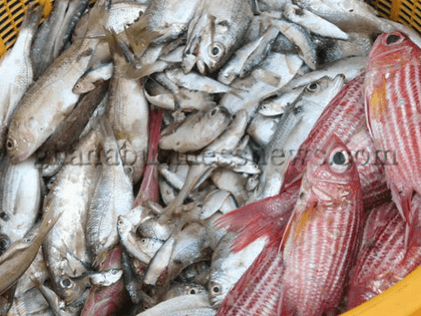

 As the 2024 general elections in Ghana loom, the ruling New Patriotic Party (NPP) finds itself grappling with the fallout from a policy that was once touted as a game-changer for the country’s economy. The Gold for Oil programme, championed by Vice President and NPP presidential candidate Dr. Mahamudu Bawumia, has failed to deliver on its promise of stabilizing the rapidly depreciating cedi, exposing a rift within the party’s leadership and raising serious questions about its economic stewardship.
As the 2024 general elections in Ghana loom, the ruling New Patriotic Party (NPP) finds itself grappling with the fallout from a policy that was once touted as a game-changer for the country’s economy. The Gold for Oil programme, championed by Vice President and NPP presidential candidate Dr. Mahamudu Bawumia, has failed to deliver on its promise of stabilizing the rapidly depreciating cedi, exposing a rift within the party’s leadership and raising serious questions about its economic stewardship.
The implications of this policy failure for the NPP’s electoral fortunes are multi-faceted and potentially far-reaching. From credibility concerns to internal party tensions, the party faces a formidable challenge in convincing Ghanaian voters that it remains the best custodian of the country’s economic future.
Credibility on the Line
Perhaps the most damaging aspect of the Gold for Oil debacle is the blow it has dealt to the NPP’s credibility. The party has long positioned itself as the standard-bearer of sound economic management, and Dr. Bawumia’s initial assurances that the policy would “ease the pressure on forex” and stabilize the cedi created high expectations among the electorate.
However, the stark contrast between these promises and the continued depreciation of the Ghanaian currency has left many voters feeling betrayed.
“The government’s inability to deliver on its economic pledges erodes public trust,” says Dr. Ama Boakye, a senior economist at the University of Ghana. “Voters may start to question the party’s competence and wonder if other campaign promises are equally unreliable.”
This credibility crisis has been exacerbated by the contradictory statements from the party’s leadership. While Dr. Bawumia had initially claimed that the policy would stabilize the cedi, the party’s running mate, Dr. Matthew Opoku-Prempeh, recently stated that currency stabilization was never the goal of the Gold for Oil programme. This discrepancy has further undermined the NPP’s credibility and raised questions about the party’s decision-making processes and commitment to transparency.
Ammunition for the opposition
The Gold for Oil debacle has provided ample ammunition for the opposition National Democratic Congress (NDC) to attack the NPP’s economic management credentials. Seizing on the contradictory statements from party leadership, the NDC has launched a scathing offensive, branding the policy a “golden failure” and questioning the NPP’s commitment to addressing Ghana’s economic problems.
Sammy Gyamfi, the NDC’s Communication Officer, has been particularly vocal in his criticism, stating, “This is a clear admission of failure by the NPP government. They promised Ghanaians that this policy would stabilize our currency, and now they’re trying to pretend that was never the goal. It’s a betrayal of the people’s trust.”
The NDC’s messaging campaign is likely to extend beyond the Gold for Oil controversy, with the party painting a broader picture of economic mismanagement under the NPP’s watch. “They’ll probably highlight other economic indicators like inflation, unemployment, and public debt to further undermine the NPP’s claims of sound economic stewardship,” explains Dr. Samuel Kwame Asiedu, a Ghanaian policy analyst based in the UK.
This coordinated opposition strategy could resonate with Ghanaian voters, especially those who have experienced the tangible impact of the country’s economic challenges on their daily lives.
Bawumia’s presidential bid in the crosshairs
As the architect of the Gold for Oil policy and the NPP’s presidential candidate, Dr. Bawumia finds himself at the center of the controversy, with his reputation as an economic expert and his viability as a presidential contender potentially under threat.
The discrepancy between his initial promises and the current economic reality, combined with the contradictory statements from the party’s leadership, could undermine his credibility, particularly among voters who had high hopes for the policy’s success.
“Bawumia’s image as the party’s economic guru has taken a significant hit,” says Dr. Boakye. “He’ll have to work hard to regain the trust of Ghanaians and convince them that he’s the right person to lead the country.”
The opposition is likely to seize upon this vulnerability, targeting Bawumia’s economic credentials and questioning his ability to effectively manage the country’s finances. This could put the NPP’s presidential candidate on the defensive, distracting him from articulating his broader vision for Ghana.
Internal party tensions and unity
The contradictory statements from the NPP leadership regarding the objectives of the Gold for Oil policy have also exposed potential cracks within the party’s unity. The running mate’s recent claim that currency stabilization was never the goal directly contradicts Dr. Bawumia’s earlier assurances, hinting at a lack of cohesion and coordination within the party’s upper echelons.
This internal discord could have serious implications for the NPP’s campaign strategy and effectiveness. “Disunity within the party leadership can undermine their ability to present a unified message and mobilize their base,” explains Dr. Asiedu. “It also raises questions about the party’s decision-making processes and its ability to navigate complex economic challenges.”
The opposition will undoubtedly seek to exploit these internal tensions, potentially portraying the NPP as a fractured and dysfunctional political entity that is ill-equipped to lead the country. This could further erode voter confidence in the party and its ability to deliver on its campaign promises.
Economic voting and the youth factor
The continued depreciation of the cedi, which the Gold for Oil policy was meant to address, is likely to have a significant impact on Ghanaian voters, particularly those who are most affected by the economic downturn.
“Economic voting,” where voters punish the incumbent party for poor economic performance, could become a crucial factor in the upcoming election. If the cedi continues to slide and the broader economic conditions deteriorate, the NPP may find it increasingly difficult to convince the electorate that it is the best steward of the nation’s finances.
This could be particularly true among young Ghanaian voters, who often bear the brunt of economic challenges and may be more inclined to hold the ruling party accountable for its failed policies. “The youth vote is a crucial demographic, and the Gold for Oil fiasco could significantly sway their political preferences,” says Dr. Boakye.
The NDC is likely to target this segment of the electorate, crafting messages that resonate with the concerns of young Ghanaians struggling with the realities of a weakening currency and its impact on their livelihoods and aspirations.
Erosion of voter trust
Beyond the economic implications, the Gold for Oil controversy has the potential to erode the trust that Ghanaian voters place in the NPP’s overall integrity and transparency. The apparent shifting of objectives and the lack of clear metrics for success have raised concerns about the party’s commitment to accountability and good governance.
“Voters want to know that their leaders are being honest with them,” explains Dr. Asiedu. “The discrepancy between the initial promises and the current claims has left many Ghanaians feeling betrayed and questioning the government’s sincerity.”
This erosion of trust could have far-reaching consequences for the NPP, as voters may become more skeptical of the party’s other campaign promises and policy proposals. Rebuilding this trust will be a crucial challenge for the party as it seeks to convince the electorate that it remains the best choice to lead Ghana into the future.
International perception and implications
The failure of the Gold for Oil policy could also impact Ghana’s international standing and its ability to attract foreign investment and support.
“This debacle sends a concerning signal to the global community about Ghana’s economic management capabilities,” notes Clement Osei-Amoako, the president of the Ghana Chamber of Commerce and Industry.
Negative perceptions of Ghana’s economic performance under the NPP’s watch could potentially affect the country’s ability to secure favorable trade deals, access to international financing, and the confidence of foreign investors. This, in turn, could further exacerbate the economic challenges facing the nation and influence voter sentiment in the upcoming elections.
The NPP will need to navigate this delicate landscape carefully, addressing the Gold for Oil failure while also reassuring the international community of Ghana’s economic potential and the party’s ability to steer the country in a positive direction.
A pivotal moment for the NPP
The Gold for Oil controversy stands as a pivotal moment for the NPP, with the party’s economic management credentials and its ability to deliver on its campaign promises under intense scrutiny. The party’s response to this crisis, both in terms of its communication strategy and its proposed solutions, will be crucial in determining its electoral fortunes.
Effectively addressing the concerns raised by the Gold for Oil debacle, reconciling the contradictory narratives within the party, and presenting a compelling alternative economic vision will be essential for the NPP to regain the trust of Ghanaian voters. Failure to do so could result in a Pyrrhic victory, where the party secures another term in office but at a significant cost to its credibility and long-term political capital.
As the 2024 elections approach, the NPP finds itself at a critical crossroads, facing a formidable challenge that will test the party’s resilience, its ability to adapt, and its commitment to transparent and accountable governance. The outcome of this battle will not only shape the country’s economic trajectory but also the political landscape for years to come.
By Ken Mensah
The post Would the Gold for Oil debacle have electoral ramifications for the NPP? appeared first on Ghana Business News.
Read Full Story










Facebook
Twitter
Pinterest
Instagram
Google+
YouTube
LinkedIn
RSS